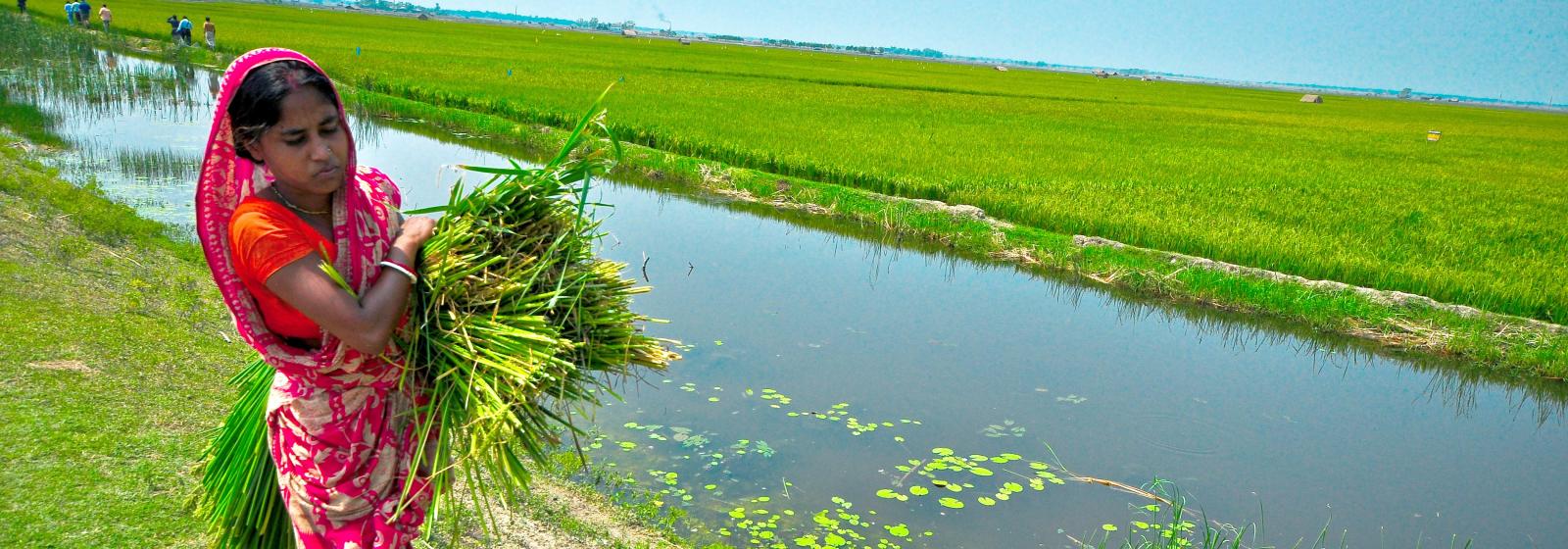By 2050 the demand for water will increase by 50% globally. Rice farmers will compete with growing demand from manufacturing, electricity, and domestic use for this natural resource. Meanwhile, land degradation, pollution, and urban encroachment is constantly diminishing the amount of land suitable for farming.
IRRI is helping rice farmers improve the productivity of their farms so they can grow more on the same amount of land using less resources and with a smaller environmental footprint.

Alternative agronomic management practices such as direct-seeded rice, non-puddled rice, and conservation agriculture, as well as the use of ICT tools like Geographic Information Systems, AutoMon, and Rice Crop Manager are just a few of the solutions that IRRI and its partners offer. These innovations help farmers optimize farm inputs like water and fertilizer to address this challenge.

Related Projects
Rice Crop Manager (RCM)
Related News
Water-efficient and risk mitigation technologies for enhancing rice production in irrigated and rainfed environments (WATERice)
Related News
- Laser-guided land leveling ramps up in Isabela
- Water for Food: PhilRice and IRRI jointly organized field day to create awareness on sustainable water management
- WateRice: New joint Philippine-IRRI water project kicks off
- WateRice project demonstrated laser guided land leveling technology to Iloilo farmers
- Philippine Department of Agriculture staff learn about laser leveling technology to improve farm outputs
Development of Sustainable Rice Straw Management Practices and Technologies for Bioenergy, Food, and Feed in the Philippines (RiceStrawPH)
Related News
- Rice straw project team wins the outstanding research and development award in the Los Baños science community
- Enhancing livelihoods through rice straw: farmer groups learn about rice straw collection options
- Mindanao farmers learn about sustainable straw management from RiceStrawPH
- Stepping up efforts to make the most out of rice straw in the Philippines
- Philippine partners learn about mechanized straw collection
Long-Term Partnership between GCDT and IRRI's Harnessing Rice Genetic Diversity to Accelerate Impact Theme
Alternate wetting and drying (AWD)
Related News
Direct-seeded rice (DSR)
Related News
- Direct Seeded Rice Consortium convenes first annual meeting to advance partnerships for more sustainable, environment-friendly rice systems
- IRRI, BASF eye wider adoption of direct seeding in Asia
- Innovations for sustainable rice farming: Jain Irrigation Systems joins IRRI consortium advancing direct seeded rice systems







